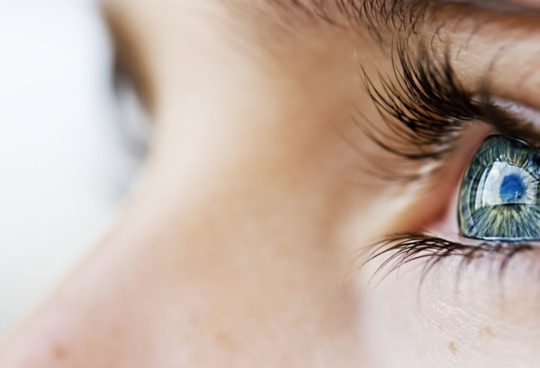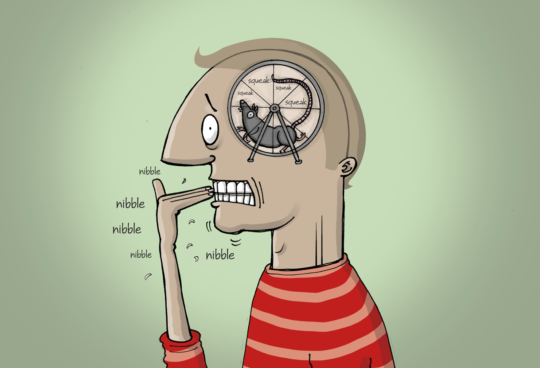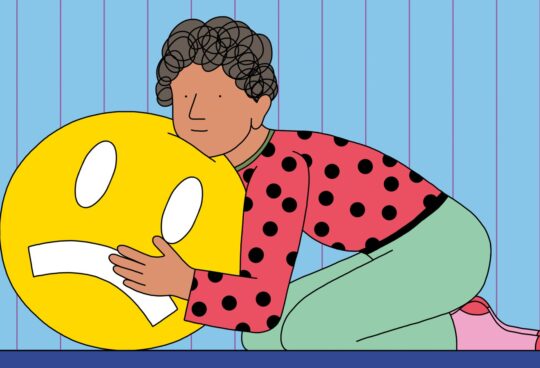In a nutshell – we have no idea! They have been trying to identify any genetic components to mental illness and still have not been able to do so. This does not mean they don’t exist – just that things might be more complicated than the question implies.
(At this point I should explain that I am not a geneticist however I have conducted an awful lot of research into the matter and this post is based on the results of that research.)
The best theories so far seem to be the ones that don’t try and rely on finding one answer to the question but are a bit more holistic. More along the line of the bio-psycho-social model. I’ll explain…

It makes it easier to think of genetics like a huge switchboard. If your mother has blue eyes and your father has blue eyes it is highly likely that you will have blue eyes – but not certain. The switch for blue eyes is most likely to be flipped on in this case. This is biological. This can be the case for a lot of physical characteristics however mental characteristics are not the same. They have identified that brain development is very much influenced by our psychological upbringing and our social upbringing. Therefore your mother might have a mental illness and your father might have a mental illness but this does not necessarily mean that you will have one. Whether that switch is flipped on is based on a lot of other factors.

If both parents are struggling emotionally then it is highly likely that they will not be able to teach you how to be an emotionally well-rounded human being. However, you may have a very close relative that is able to do this for you and give you a secure base to work from. You may have a brilliant school environment with great friends and teachers who are encouraging and supportive. In short you may be able to get all your psychological and social needs met elsewhere and grow up to be a very emotionally well-rounded person and the mental illness switch does not get flipped on.
So, why am I writing about this? Well, I have found that, unfortunately, the people who believe that there is purely a genetic component to mental illness are the ones that are least likely to recover well. The ones who think it was inevitable and there is nothing they can do about it because it is “just in their genes” can often have a sense of futility about them when they come to therapy.
So I am writing this to give those people hope. If the switch got flipped on because of a number of factors then, it stands to reason, if you try and work on your biological, psychological and social well-being switches you can switch the mental illness one off again. I’m not saying this will be easy but it is achievable. There is a lot of current research into neuroplasticity and how the brain is able to make new pathways – is able to flip different switches throughout a person’s life. It takes time and hard work but definitely can be done.

In these blogs I hope that I will be able to give you ideas of how to switch your more positive switches on!
If you want me to talk about something specific in one of the blogs or you just have a question please Contact me.






Sorry, the comment form is closed at this time.